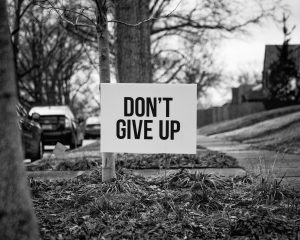
Defying the odds, taking a stand and owning your life
This has been a year like no other. It has no doubt tested every ounce

Talent retention is a real challenge and employees are looking for organizations that inspire them, uplift them and create opportunities for growth and progression. Of significant importance to retaining people is the ability of an organization to create alignment between what they say and what they actually do. Misalignment of value systems is fast becoming a key driver of high employee turnover, absenteeism, high levels of dissatisfaction and disengaged employees, all of which have significant impacts on overall business productivity and sustainability into the future.
The importance of organizational values cannot be overemphasized enough. It is the foundational principles that defines the ethos and the spirit in which the organization operates. It is the culture that we embed on a daily basis, through the way in which we behave, the way in which we work and the way in which we create an environment that is conducive to employee growth and well being. The extent to which an organization is able to create a positive culture is what defines their ability to transition the organization towards their desired vision.
Key drivers of Talent Retention.
Effective Leadership – when leadership is unclear about the vision or the game plan for the organization, the outcome of that is a lack of focus. Nobody wants to work for a leader who is clueless. Leaders must inspire, they must enthuse others and they must be able to create a compelling reason for employee’s to follow their purpose. When leadership takes charge, when they are focused and clear on their vision, they create shared responsibility and they raise the importance of everyone’s role.
Connect – people don’t just want to be treated like employees. They are people and they have a desire to be accepted and respected as such. This means that we should find ways to connect with our people. Our ability to harness their skills and capabilities creates a strong loyalty towards the organization. When we value people for their contributions and not differentiate their value according to their titles, we shift culture. It tells us that we are all equal, and that we all have equal value. Sometimes we are so focused at correcting, that we miss the opportunity to connect.
Co-creation – to really retain talent means creating a platform where they can engage, where they can provide their inputs and where they can contribute to shaping the organization. People need to know where the organization is going, to be able to ask questions, to safely challenge the way things are done and to have an opportunity to voice their opinions. To really appreciate talent means giving them the platform to share their value.
Team cohesion – an environment that creates healthy teamwork and team cohesion is fundamental for talent retention. Dysfunctional teams with hidden agendas create toxic environments and compromise the effectiveness of the organization. These negative emotions erode loyalty and challenge an employee’s commitment to their role. People who create dysfunctional organizations must be dealt with so that the virus does not continue to cripple its future. If left unattended, the impact is that we generate our own zombie apocalypse where people become closed to change, fearful of participation, paralysed by fear and destructive in their quest to protect themselves. People want to be effective, not inhibited. They want to contribute, not be dictated to. They want to make a difference, not be treated with indifference.
Growth – almost everyone wants to grow. Being and feeling stifled compromises our ability to optimize our capability. Organizational structures must allow for significant career modeling and blended learning interventions that consistently challenge thinking. Development opportunities must not only address “just in time” requirements but must also train for the changing business landscape so that we remain relevant and dynamic enough to shape the next generation of leaders.
Employees are most engaged when they are part of the organizations plans, where they can be given the latitude to create positive change and be held accountable for its impacts. When they can see the efforts of their performance manifested in the desired culture, employees engage and drive goals that are aligned to the organization’s purpose and vision.
Nimee, a Master HR professional has seen how these principles when applied, can improve business and personal challenges.
Over the years, Nimee has helped coach and mentor many people from all walks of life. She has a deep passion for life, for learning and for seizing every moment. She has led many organisations to create healthy workplaces, align business and individual values and generate a culture of inclusivity and aspiration. Through her professional exposures, Nimee has been able to share this learning with many individuals, guiding them through personal crises, showing them the importance of vision and direction in their lives and working with them to craft workable and practical strategies to get their lives on track. Nimee is an advocate for self-leadership and this is a common theme that is prevalent in all her teachings.

This has been a year like no other. It has no doubt tested every ounce

We all have opinions about the Will Smith and Chris Rock saga. It’s often

It’s been a long few months with many challenges faced, not just for us, but

Talent retention is a real challenge and employees are looking for organizations that inspire them,

The world is changing at a rapid pace and certainty is a thing of the